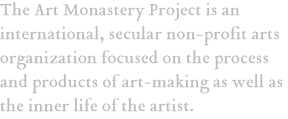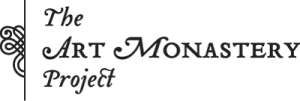theFWD submission #4
[intended partially as a provocation, partially completely seriously, for the Future We Deserve collaborative book project]
3rd-Party Certification of Spiritual Agents, Teachers & Centers
The goal of certification is to protect both spiritual practitioners (agents), teachers, and centers.
Monastic tradition, by adhering to openly published rules and vows and being accountable to a central governance body of some kind, essentially offers the same kind of protection. A secular monastic tradition can go even further in this direction, but the governance body need only be a non-profit certifying organization, with no other authority.
The principals of the certifying organization will be such that it’s highest goals are to protect practitioners, teachers and centers by focusing on 1) education, 2) transparency and 3) accountability, without saying anything about what consititutes a “right path” (except, of course, by implying that what practitioners need to be protected from—unconsensual physical & sexual abuse—are a “wrong path” and that more subjective abuses—emotional and verbal—should only be entered into with eyes wide open.)
The certification of spiritual agents and spiritual teachers/center are essentially interconnected (if one is not present, the other is less effective).
Certified spiritual agents
For the agent, certification here depends on 1) broad knowledge of spiritual traditions and 2) acknowledging the problematic or dangerous aspects of some types of spiritual pursuit. Spiritual agents take responsibility for their own spiritual journey. They thus understand the risks associated with the path, and have studied the history of spirituality broadly, the characteristics of various spiritual communities and teachers and styles of teaching, and are assumed capable of making informed decisions when choosing a spiritual teacher or community. They seek out certified spiritual teachers and centers.
Certified spiritual teachers / spiritual centers
Spiritual teachers are certified by submitting to a certain level of 1) transparency and 2) accountability. No legal teaching method is forbidden for certification, but it must be transparently stated. The teacher or center is accountable to act in accordance with their transparently statements, or risk losing certification. Certified spiritual teachers / centers may or may not state that they only accept certified spiritual agents. They may be required to state which model(s) of spiritual progress and which view(s) of enlightenment/awakening/realization they hold, if any.
Examples:
“This center accepts only students who are 1) certified spiritual agents and 2) have spent more than a cumulative 1 month in silent meditation.”
“This teacher will act according to a set of guidelines as follows: no verbal, physical, or emotional abuse. Trained psychological counselors are standing by to assist you should you encounter a tricky spot.”
“This teacher employs crazy wisdom, which may take the form of verbal and physical abuse. By becoming a student you understand the risk, and you’re on your own.”
“This center employs the guru-model. Its view is that the spiritual path is best treated with an outside intervention. By coming here you are asking the center to do whatever it takes (within the law) to help you reach your goal.”
“This monastery requires a vow of 1) obedience to the abbot/abbess, 2) commitment to staying at the monastery and 3) daily conversion of your life. You enter a 1 year trial period and 3 years as a novitiate before becoming an avowed monk.” [1. Notice that this is basically what monastic traditions do, by following openly published monastic rules]
Notes:
Leave a Reply
You must be logged in to post a comment.




